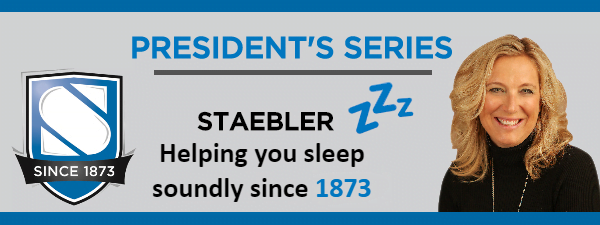This is part one of a four-part series. Stay tuned for the next editions on STAEBLER.COM/Blog!
Scientists are pretty clear that sleep is necessary for our survival but they are still trying to learn exactly why people need sleep. Too little sleep leaves us drowsy and unable to concentrate. It also impacts our memory function, physical and cognitive performance.
Parts of the brain that control emotions, decision-making processes, and social interactions are restored during the deep sleep phases. This is necessary for emotional and social functioning when awake. Extended sleep deprivation can cause hallucinations and mood swings and get you into a lot of trouble.
According to researchers, 24 hours worth of sleeplessness breaks down cognitive faculties to such a degree that you’ll be 4.5 times more likely to sign a false confession.
Deep sleep truly is “Beauty Sleep”. During deep sleep stages the body gets to work on restoring proteins, the building blocks for cell growth, repair damage, and producing new cells. In children and young adults the deep sleep stage is when their growth hormone is released causing them to sprout up by morning.
Rip van Winkle got plenty of sleep, are you?
Sleep deprivation hurts cognitive performance and is associated with mental health issues, but we all don’t need the same amount of sleep. Sleep needs vary throughout your life. Younger adults suffer the most and are hit harder by sleep deprivation that their parents or grandparents.
So what is ideal*?
| Newborns
| 14-17 hours per day |
| 12 Months | 10 hours a night Plus four hours of naps
|
| 2 years | 11-12 hours at night Plus one to two hours of naps
|
| 3-5 years
| 10-13 hours per night |
| 6-13 years
| 9-11 hours per night |
| 14-17 years
| 8-10 hours per night |
| Adults
| 7-9 hours per night |
| Seniors | It’s more common for seniors to spread their sleep out over a 24-hour period, sleeping 4-5 hours per night plus naps during the day. |
Staebler Insurance – Helping you sleep soundly since 1873.
*These are general guidelines and individual needs may vary. Consult a physician for your unique recommendations.





0 Comments